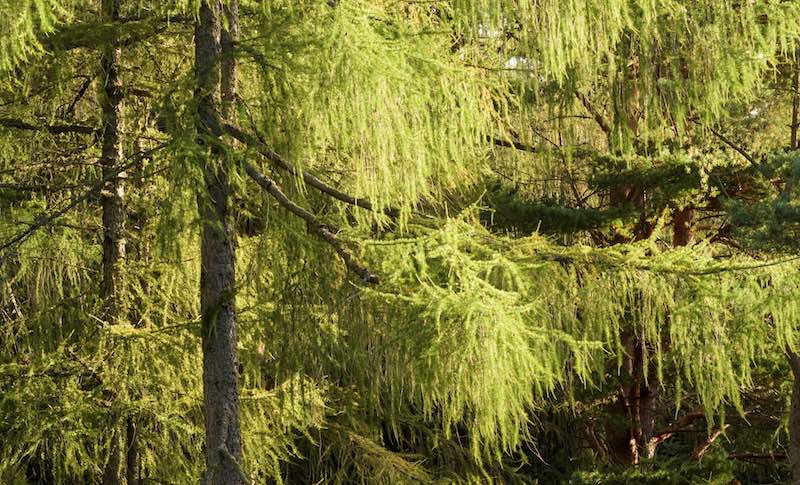Forestry and Land Scotland is putting its shoulder to the wheel to help the national effort to control the spread of Phytophthora ramorum by carrying out surveys around the affected larch sites that it manages and across its significant areas of larch not known to be infected.
Phytophthora ramorum primarily kills larch trees and with no known cure the only remedy to stop its further spread is to fell infected trees.
Timber processors can still make use of the timber but need advanced warning if they are to cope with a sudden increase in larch production.
The surveying effort – in tandem with similar efforts from other private sector land managers – helps to compensate for the impact of COVID-19 restrictions on the formal helicopter survey.
To comply with social distancing instead of flying with the usual three ‘spotters’, the Scottish Forestry helicopter survey is only crewed by one spotter.
Alan Gale, FLS Adaptation and Resilience Programme Manager, said;
“With COVID-19 restrictions impacting on this important annual survey, we – are putting extra effort into this task in a bid to stay on top of the ongoing effort to manage this disease.
“By using a combination of drones and ‘boots on the ground’ we’re checking areas around known infection sites on the land that we manage, which will free up the helicopter team to focus on other larch areas.
“It is imperative that we identify as quickly as possible any new outbreaks as this gives us the best chance of felling diseased trees before it manages to move on to new sites.
“The surveys will carry on until the end of August but early indications are that there has been no great increase in the rate of spread from last year.
“With fewer eyes in the air this year, the ground surveys are a very important component in ensuring that the nation-wide checks are undertaken.”
Across Scotland, FLS teams have already checked larch in 69 of its blocks (in 124,000ha) and a further 53 blocks (in 93,000ha) are planned for checking in August.
Taking a risk-based approach the helicopter survey started in June and has now completed flights across Scotland, in particular focussing on high risk areas, Scottish Forestry has also deployed ground truthing teams who are now working rapidly to confirm findings.
Scottish Forestry issued a press release requesting that all landowners inspect their trees and report any suspect finding to tree.health@forestry.gov.scot
Alan added:
“It’s an ongoing team effort involving both forestry agencies and a number of private sector land managers and organisations.
“It’s great to see the sector coming together to work for the common good.”



